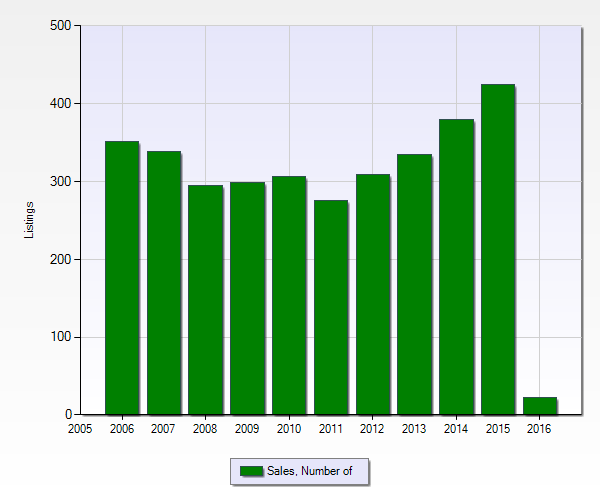If you’ve been considering selling your home, then you’ve asked yourself the question: “What should we sell it for?” This is a complex question with a complex answer. The truth is, deciding a list price is an art and science. There are many components to consider, and it can seem like an overwhelming task to pick the right price. No doubt this is a stressful and daunting endeavor. Hopefully this guide will help make the decision easier.
Deciding Factors
Here are some of the major factors in deciding what to price your home at:
- What condition is my home in?
- What did I purchase the home for and what have I done to improve it?
- How does the location affect my home’s marketability?
- How does my home compare to other homes in the neighborhood and area?
- How is the current market?
- How much do I owe on my home?
- What is the lowest I’d be willing to accept on my home?
- What are my goals in selling?
- How has my home served me and my family these past years?
…
And the list goes on and on.
Understand a Real Estate Market
We as sales agents are working with a market that fluctuates just like any other market. There is supply and demand, and there are buyers and sellers. One thing to keep in mind is that this is not a retail market. As much as we’d like to, we can’t say, “This is the sticker price because that’s what the manufacturer suggests”. I wish it were that easy. 🙂 Let’s understand what is Market Value.
“Market Value” is: “the estimated amount for which a property should exchange on the date of valuation between a willing buyer and a willing seller in an arm’s-length transaction after proper marketing wherein the parties had each acted knowledgeably, prudently, and without compulsion.” – IVS 1 – Market Value Basis of Valuation, Seventh Edition
The above definition of market value tells us that the market value of your property is the estimated amount you would agree to sell your home for and a buyer would be willing to pay for it. You may know what you’d be willing to sell your home for, but do you know what a knowledgeable buyer is willing to pay for it?
Analyze your Property in the Market
So how do we determine this? We have to establish an analysis of where your home fits in with today’s buyers (who are incidentally very knowledgeable of the market thanks to the internet). To do this, we compare your property to as many similar properties of like size, condition, style, etc. in your immediate area, that sold and listed within your current market’s time frame.
Decide on a price
So what does this analysis tell us? This usually gives us a range of values and an understanding of where your home fits in the market. This usually doesn’t give us an exact price. Obviously, we shouldn’t be too high that you are overlooked because of price, or too low that we don’t maximize your return. Now that we have a range we need to determine your list price. Many times I will give a suggestion based on other properties for sale and how we can compete against them. Other times the price should be up to you and your goals.
Don’t start too high
One question always asked is, “If we list at $300,000, then someone is likely to offer less, so shouldn’t we list at $320,000? Then we have room to reduce if we don’t have an offer.” To answer that you need to reflect on the market and your goals. Take a look at the chart below. This is a hypothetical listing showing the interest generated on a listing in the form of “listing views” over time depending on where you price in comparison to market value. As time goes on, the amount of interest quickly dissipates. If your market allows for you to list higher without “overpricing” then it won’t be too much of a problem. If by listing higher, you affect your properties marketability by turning buyers away, then you should consider staying at a lower price. Notice in the chart that the only time you really notice an increase in interest is when the price is reduced.
This surge of initial interest is most likely because there are more buyers in the market waiting to find something that suits them, than there are buyers coming to the market every day. Take advantage of this exposure by listing with an aggressive price and excellent presentation to capture the buyers. Don’t list it too high and miss out on your best chances to sell.
Reduce if Necessary
Many sellers complain that their agent wants them to reduce too soon. This is because we understand the market and how to sell your home. We want you to sell and for the highest price possible. Like the chart above shows, there is only one way to generate new interest on a listing. Here are some indicators that you should reduce the price:
- You don’t have any offers after typical marketing time
- You have many showings, but no offers
- Many buyers’ feedback is about condition or location
- Lower priced comparable properties are selling
- You are given one or more low offers
- You have a low amount, sporadic, or no showings
Remember, there are three reasons why a house won’t sell.
- The condition is less than desirable
- The location is less than desirable
- The price is too high
By adjusting one or more of these 3 factors , you can be assured to sell quickly and for the most amount possible. Unfortunately it isn’t cost effective to move most homes, and unless you want to spend more money, remodeling is probably not likely. This leaves the price. Don’t let your attachment to a property keep you from reaching that goal of selling. Make sure you really understand your market and where your property’s market value is based on facts.
If you live in North East Ohio and would like me to give you an analysis on your home, just contact me at 330-412-2221 or by email joey@whippleauction.com.
If you live anywhere else, I can connect you with a local agent to help you get started.




